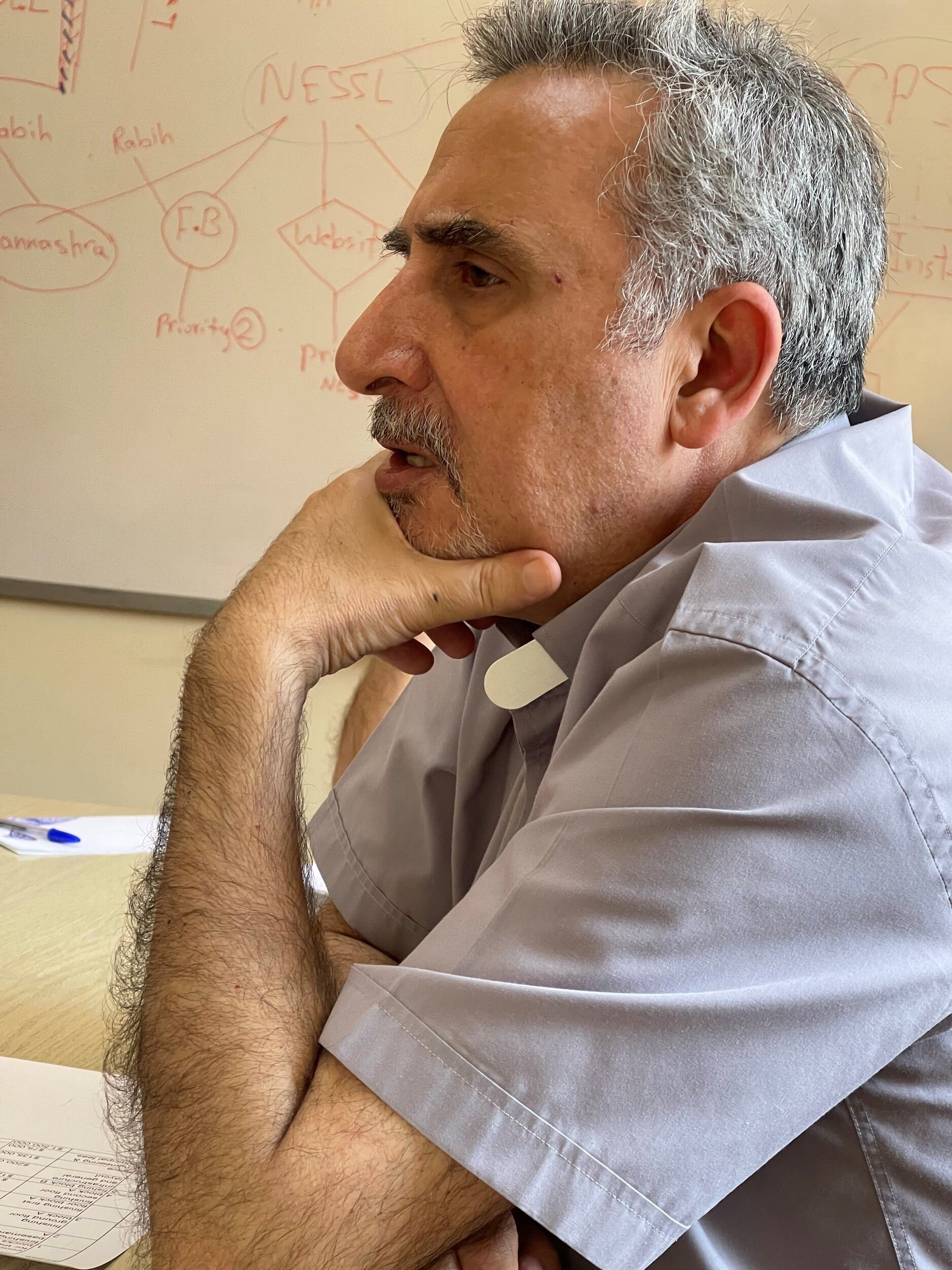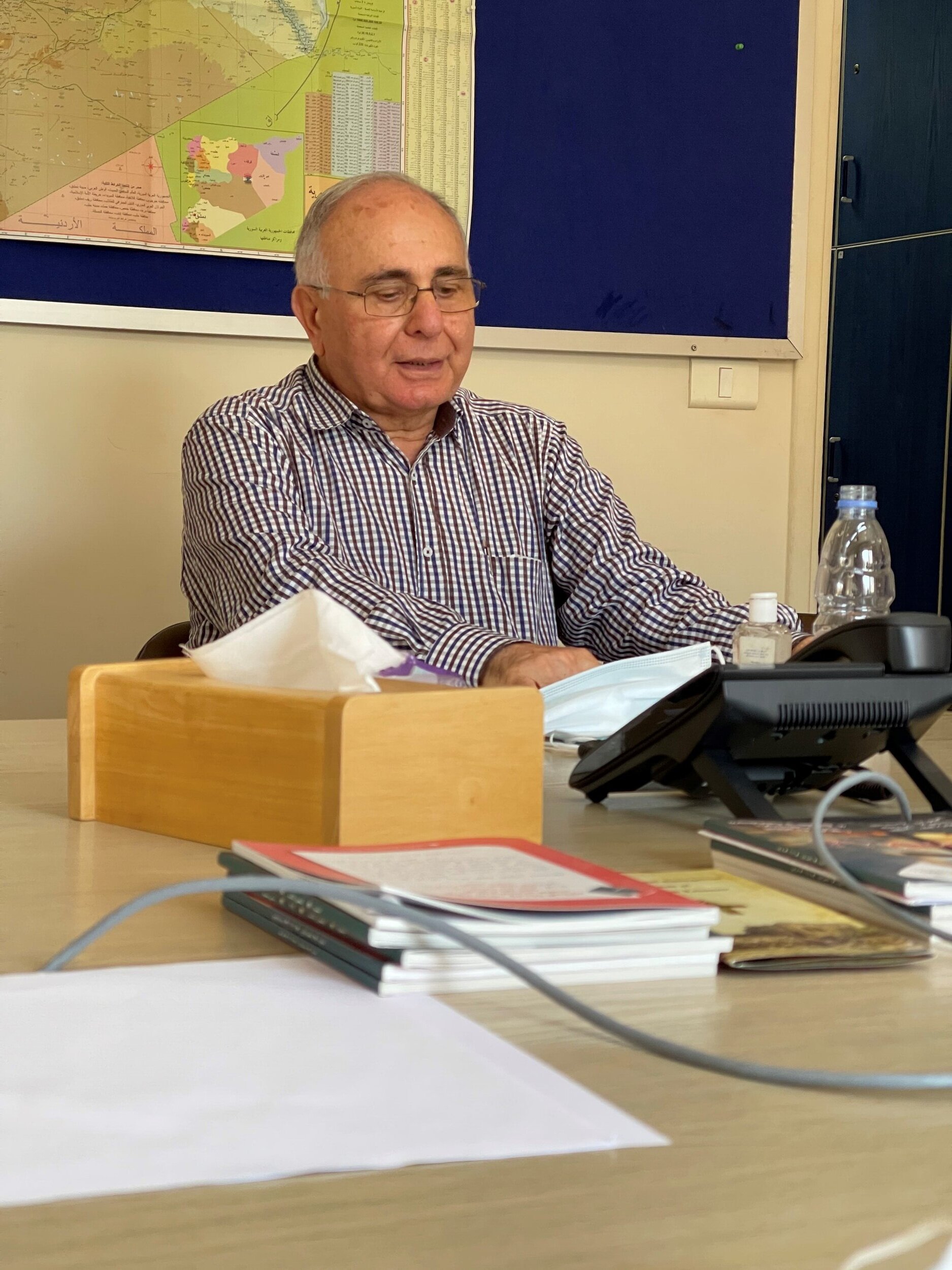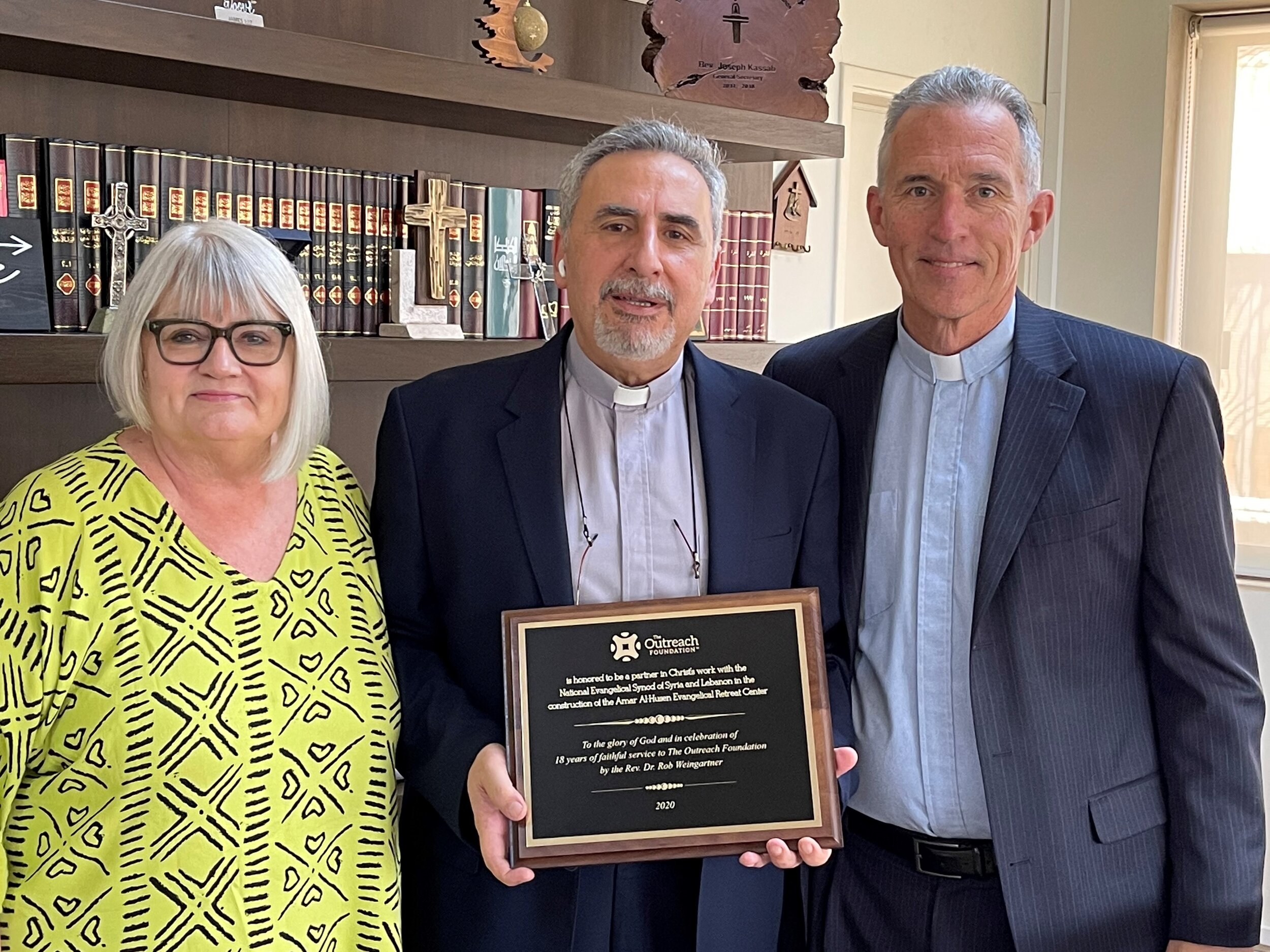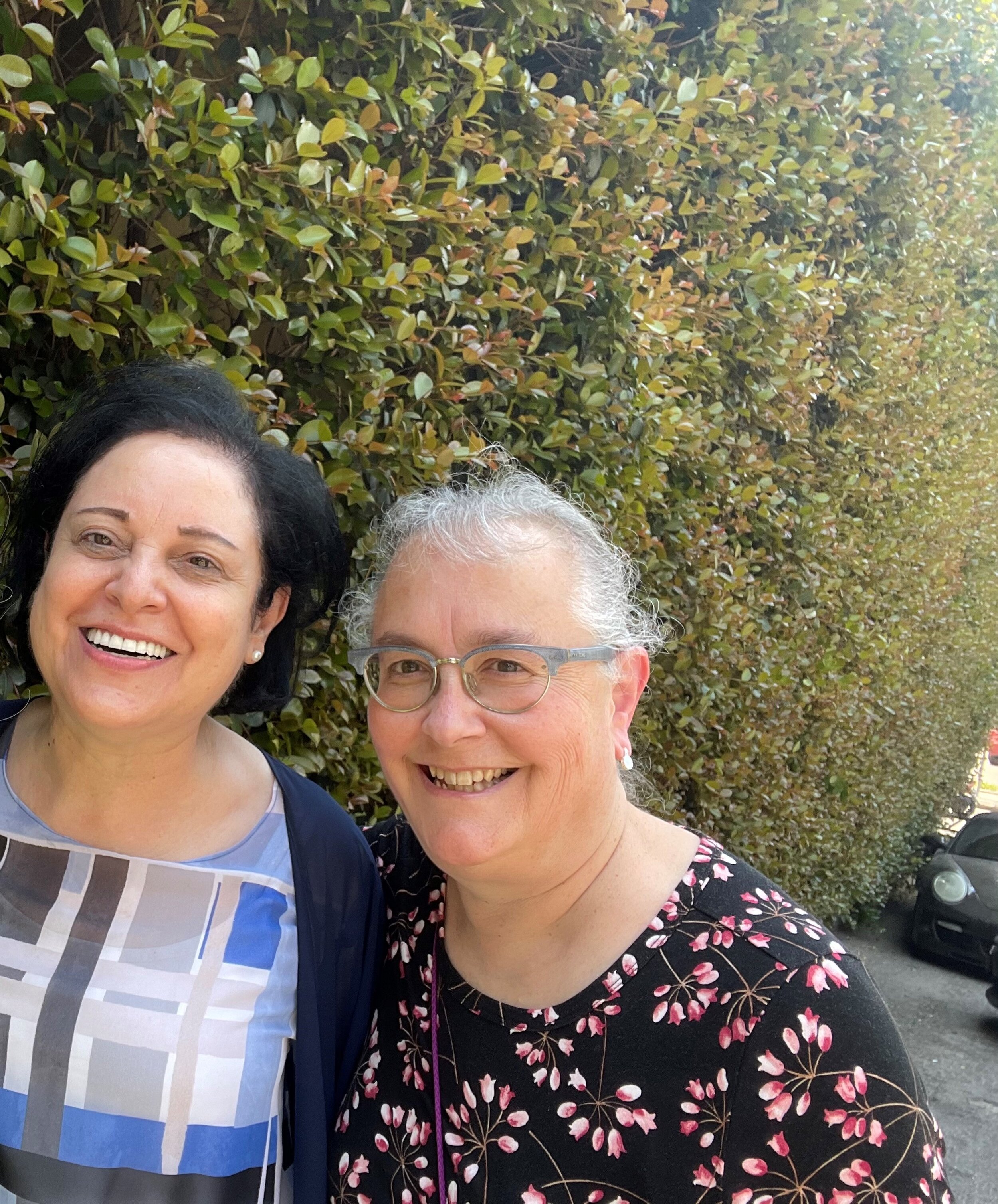Lebanon #2: Loving Jesus
by Julie Burgess for the team: Marilyn Borst, Rev. Mark Mueller, Rev. Jack Baca, Rev. Nuhad Tomeh
We have all made our first travel outside the U.S. since the pandemic began here to Lebanon, a place familiar to us all. Traveling seems different, like everything else. We have learned a new language of COVID forms and PCR tests and even the mysterious CovidLebTrack app that baffled us all. What hasn’t changed is the length of the journey and the almost mandatory three flights, depending on where you began the journey. Needless to say, you arrive exhausted. I know I did.
On Thursday night, my head was ready to hit the pillow early. My energy banks were empty after but two hours of sleep since I arrived the day before, and as I negotiate a different time zone. But...how could I not report on the reunions that happened this day, accompanied by good food and good conversations. These are the two things we "do" here. I cannot possibly explain with my sleep-deprived brain just how important those two things are. Even in the midst of so much chaos - pandemic, political, economic - the hospitality of this place cannot escape you. Coffee with manaeish and kneffe. Small but tasty pistachio cookies brought with love from Syria. Lunch of endless and varied mezzeh, including my favorite: sauda (chicken livers). This is the place of the always-refilled plate.
There is always so much food, what remains uneaten does not go to waste. The abundance that is impossible to eat, is saved and shared with those who do not have the means to just go out for lunch. In other times if the extra food had been offered to someone else, it would have been refused. The abundance of it and the prices made it unnecessary. Like this newly minted and apparent poverty, so much has changed here since I last came in 2019, but hospitality? Never. This is the essence of the Lebanese and Syrian people.
And conversation...sit back and let the firehose of theology hit you full on. I sit surrounded by scholars and pastors and scholar pastors and imagine this is what it was like for the disciples learning from Jesus himself. Engaging with so many learned and faithful people reminds me that at 62, I simply do not know it all and have much to learn. But these same faithful saints not only give, but they also listen to me and let me wrestle with just what God has to say.
How much do we love Jesus? How do we love Jesus? We covered this today.
These conversations took place at the offices of the National Evangelical Synod of Syria and Lebanon, one of The Outreach Foundation’s longtime partners in this part of the world. We heard from the Education Committee through the voice of Dr. Johnny Awwad who leads this team and is also a professor of New Testament at the Near East School of Theology. We learned of the difficulties that these times of chaos have brought to the seven Synod run schools, a more than important ministry. “Education is our petrol,” said Najla Kassab. And like pipelines anywhere, they can be choked off by outside forces, such as an economy spiraling downward. And yet, persistence is biblical, and so they persist even in difficult circumstances.
We heard about hope in the form of building projects from Elder Waleed Katibeh. Outreach is the sponsor of one of these physical forms of hope in the Christian Valley in Syria, as a new conference center rises from the ground that will eventually be able to host 100 guests. The ministry of gathering young and old for time away from day-to-day life is one of encouragement and engagement.
How much do we love Jesus? How do we love Jesus? These are some of the answers to those questions. We will see and experience more in the days ahead.
I wish you were here for our theology classes, a chance to be discipled by disciples.





